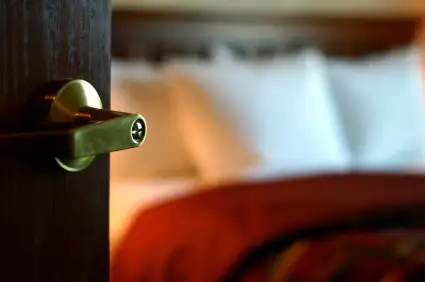
Elite status is normally awarded for flights or room nights earned during a calendar year. Elite-qualifying points (EQPs) earned during 2010, for instance, count toward 2011 status. But EQPs earned in excess of one elite threshold but below the next-higher threshold are superfluous.
Example: You earned 35,000 EQPs during 2009. Your program awards silver status at 25,000 points, and gold at 50,000. So on the strength of your 35,000 EQPs, you enjoyed the perks associated with silver status throughout 2010. But the 10,000 EQPs you earned over and above the silver qualification requirement? They’re wiped off the books. On January 1, 2010, the EQP clock reset to zero for earning 2011 status.
There has always been a contingent of frequent travelers who railed against that policy. Why, they argued, should those 10,000 EQPs disappear into the ether? Shouldn’t they count … somehow … toward something?
Marriott Steps Up
Marriott heard them loud and clear, and in 2009 broke with the prevailing standard, introducing its elite rollover nights. The name said it all. Using our example, with rollover nights, those 10,000 EQPs earned during 2009 would be rolled over into 2010, giving you a head start toward reaching elite status for 2011.
Marriott extended the rollover policy for points earned during 2010. And they’ve just announced that the policy will apply to points earned during 2011 as well.
For context, it should be noted that, compared to other major hotel programs, elite status in Marriott Rewards is especially difficult to achieve, especially for middle- and higher-tier status.
Marriott’s entry-level Silver status is awarded after a reasonable 10 nights, but Gold level requires 50 nights, and Platinum isn’t reached until 75 nights.
Status in Hilton’s program also kicks in after 10 nights, but mid- and high-level status is earned after just 36 and 60 nights, respectively. InterContinental and Starwood’s programs only have two elite tiers, the highest of which is reached after 50 nights.
It could, in other words, be argued that rollover nights are needed to mitigate the difficulty of earning higher-level elite status in Marriott’s program.
Whatever Marriott’s motivation, the end result is a good one.
The Next Step
As I’ve noted elsewhere, Marriott Rewards members are well served by elite rollover nights. They would be better served, however, if Marriott made it a permanent program policy, instead of coyly extending it a year at a time, keeping Rewards members guessing.
Just as Marriott is looking for long-term loyalty from Rewards members, members are looking for long-term program benefits. Rollover nights should be among them.
This article originally appeared on FrequentFlier.com.
We hand-pick everything we recommend and select items through testing and reviews. Some products are sent to us free of charge with no incentive to offer a favorable review. We offer our unbiased opinions and do not accept compensation to review products. All items are in stock and prices are accurate at the time of publication. If you buy something through our links, we may earn a commission.
Related
Top Fares From
Today's Top Travel Deals
Brought to you by ShermansTravel
Greece: 9-Night Vacation, Incl. Meteora &...
Exoticca
 vacation
$2099+
vacation
$2099+
New Year Sale: Luxe, 9-Nt Alaska...
Oceania Cruises
 cruise
$3599+
cruise
$3599+
Ohio: Daily Car Rentals from Cincinnati
85OFF.com
 Car Rental
$19+
Car Rental
$19+



